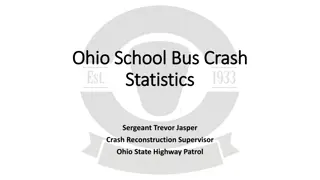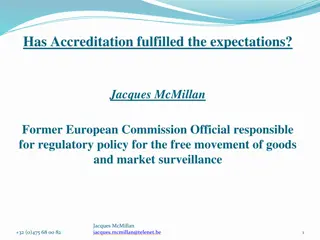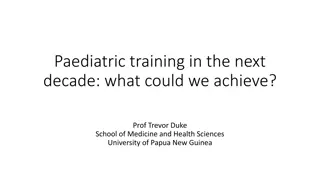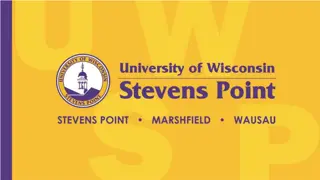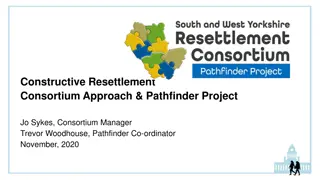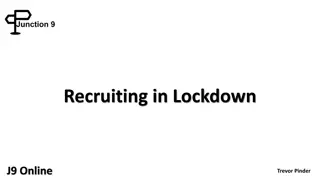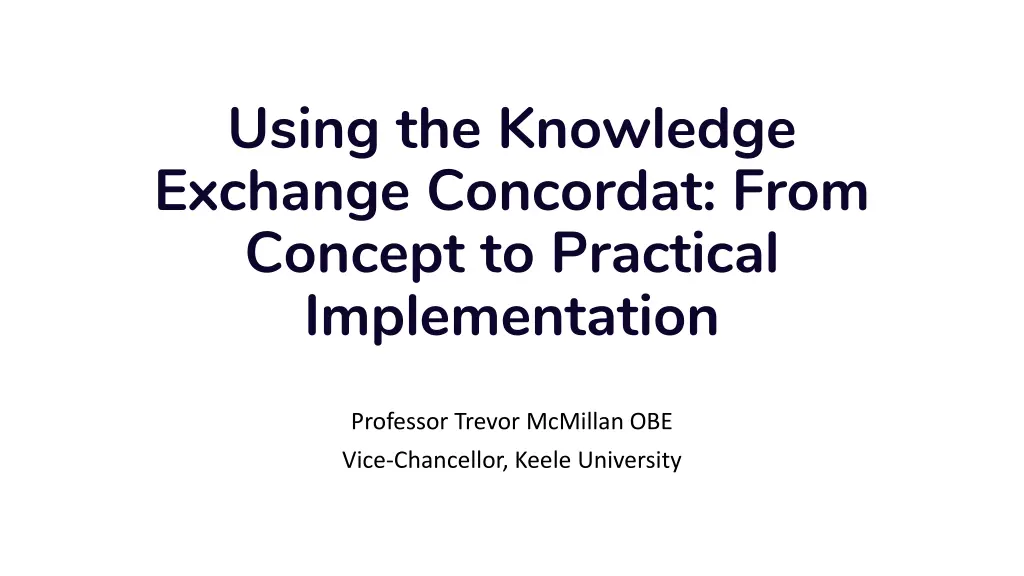
Enhancing Knowledge Exchange Concordat Implementation
Explore the practical implementation of the Knowledge Exchange Concordat, aimed at improving university knowledge exchange by addressing leadership, governance, and support issues. Learn about the origins, purposes, aims, assurance for KE funding, and reflections on its effectiveness. Reflect on the necessity of the concordat, its past outcomes, and possibilities for improvement.
Download Presentation

Please find below an Image/Link to download the presentation.
The content on the website is provided AS IS for your information and personal use only. It may not be sold, licensed, or shared on other websites without obtaining consent from the author. If you encounter any issues during the download, it is possible that the publisher has removed the file from their server.
You are allowed to download the files provided on this website for personal or commercial use, subject to the condition that they are used lawfully. All files are the property of their respective owners.
The content on the website is provided AS IS for your information and personal use only. It may not be sold, licensed, or shared on other websites without obtaining consent from the author.
E N D
Presentation Transcript
Using the Knowledge Exchange Concordat: From Concept to Practical Implementation Professor Trevor McMillan OBE Vice-Chancellor, Keele University
KE Concordat Origins Policy makers unconvinced of the value of university knowledge exchange Universities needing to improve leadership, governance and support for KE Old fashion views of tech transfer Obsession with single issues Intellectual Property and Commercialisation Policy Groundhog day The KE The KE Concordat Concordat KE Concordat Purpose Advance Knowledge Exchange through: Clarity of Mission Accurate Representation Clear Indicators Building Confidence It s the Keele difference.
Aims Aims Give our staff a clarity of mission Give partners (business and investors but also societal partners) an accurate representation of our strengths and weaknesses Demonstrate to Government, funders our commitment to high standards Reduce inevitable tensions in negotiations Improve our efficiency and effectiveness, and impact Demonstrate our commitment to society/communities
Assurance for KE funding is important and is achieved in a variety of ways including: HEIF Accountability Statements (England only) provides assurance that public funds are used for purpose intended - and will deliver value for money, resting on above KEF (England only) provides published evidence on institutional performance achievement In this context the KE Concordat provides a means to facilitate the continuous improvement in performance
Last exercise 2021 Next exercise due 2024. Time for reflection
3 questions to reflect on.. 3 questions to reflect on .. Is there still a need for the concordat? Did the last exercise fulfill what was required, in particular is there evidence that there is improvement in KE performance? How can it be improved?
What are Universities for? The advancement of learning by teaching and research and its dissemination by every means Is to be bold and inspirational in providing education, research and creative practice, which offers transformative experiences to students, staff, communities and business partners in the UK and across the world. We will be a source and driver of new thinking and practice that improves communities, lives and the economy. committed to leading the intellectual, social and economic development of the communities it serves through teaching, research and creativity that achieve the highest standards. making a difference in society by providing innovative, high-quality education for students from all backgrounds and by undertaking world-leading research that transforms understanding and brings benefit to society, communities and individuals
Research England Strategic Delivery Plan : Research England Strategic Delivery Plan : April 2023 April 2023 Our strategic objectives Our purpose Research England aims to create and sustain the conditions for a healthy, dynamic, diverse and inclusive research and knowledge exchange system in the higher education sector and does so by working in partnership with stakeholders and through funding English universities and key partners. World-class people and careers World-class places World-class ideas World-class innovation World-class impacts A world-class organisation
Relevant areas of Government policy Relevant areas of Government policy Knowledge based economy Fill exploitation/commercialization of IP Post-Brexit global relationships Leveling up Town/City regeneration Path to Net Zero Development of a modern workforce (Skills and Graduate Outcomes) Health and Wellbeing Impact of research and education.
What has the concordat achieved? What has the concordat achieved? Two reports: NCUB Review of Action Plans UUK survey of views of universities and evaluators Plus informal feedback from universities, stakeholders, funders, government.
High level thoughts.. Fantastic engagement in the sector Vast majority of universities were content with the way the development year went and believed it will make a difference in their institutions. KE is a wide range of of activities that can be innovative at institutional or national level.
Also.. Some HEIs found it burdensome Was there enough external/stakeholder input at HEI level? The lack of publication of the action plans reduced its impact in terms of reassurance and transparency. The work of the assessment panels was hugely appreciated but there were questions of the value of the scale of the evaluation/feedback operation.
The concordat has been part of our system that has The concordat has been part of our system that has helped achieve helped achieve National Centre for Academic and Cultural Exchange Connecting Capability Fund The Role of Technicians in Knowledge Exchange: An explorative Study Regular acknowledgement in funding policy publications that KEC an important process by the sector to help improve KE performance. Increased recognition within institutions of KE and the staff who are involved.
Some of the things HEIs have been doing to maximize Some of the things HEIs have been doing to maximize the impact of the KEC the impact of the KEC (Noting that it is still quite early after the (Noting that it is still quite early after the development year). development year). Used the process of producing the action plan as a mechanism for engaging the wider university community. Asked how KE fits with research and education? Checked how they are supporting staff and students to do KE? Used the feedback from the evaluation panel to cross check what good looks like? Used the process and outcomes of the evaluation combined with the KEF to ensure that Is our potential role is recognized locally and nationally?
Some important questions to ask? Are the aims still appropriate (ie largely about self improvement?) Are the principles still right? Is there anything that needs adding or increasing in emphasis (eg commercialization)? Who is the audience, do they want different things? (internal, funders, external stakeholders, government) How much does the next exercise need to check on progress and how much should it just look forward, noting that it is critical that we can demonstrate the benefits that the concordat has brought to the sector. Will the KEC have full impact while it is not published (internal v external impact) Is the scale of the evaluation process appropriate? Is it important that it is sector-led?
The KEC Strategy Group will be looking at these questions. So . Is there anything else we should be looking at? Are there more positive or negative impacts of the Concordat that we should be considering? (t.j.mcmillan@keele.ac.uk, greg.wade@universitiesuk.ac.uk )





